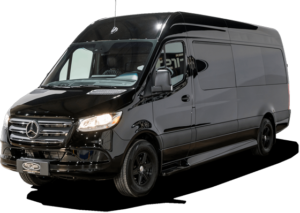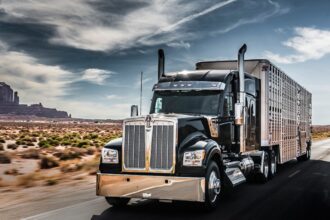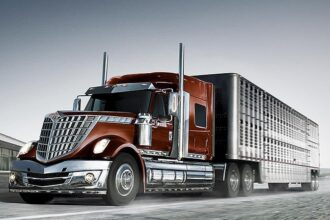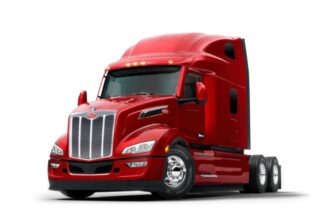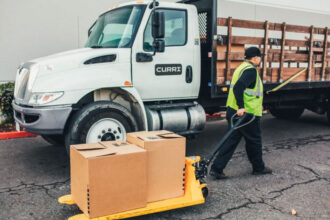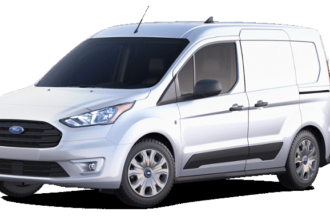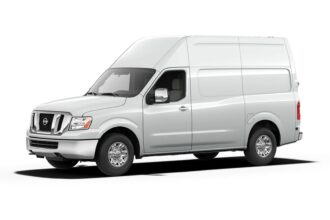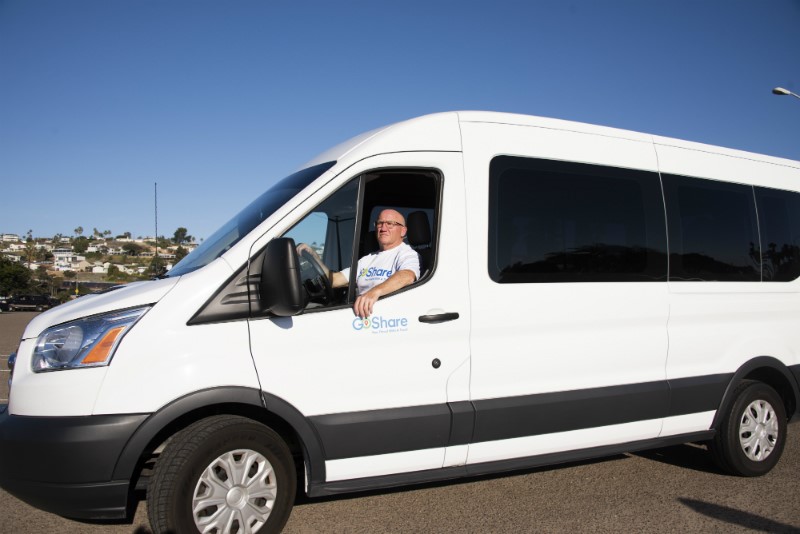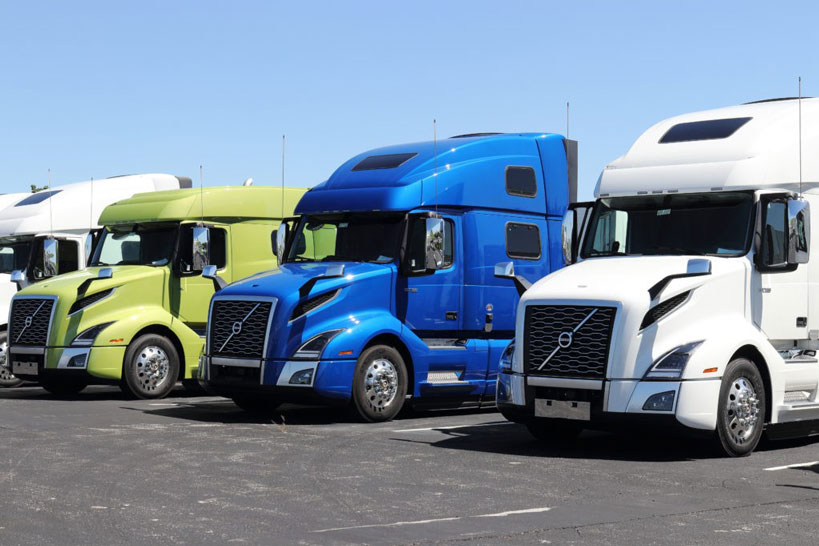Table of Contents
Introduction
Ready to kickstart a small truck business? Want to be at the helm of your very own small trucking company? It’s very simple! Small truck business is all about transporting goods across the country, or maybe even just across town. It’s a business that focuses on logistics – efficiently moving cargo from point A to point B.
From planning your route to avoiding detours that derail your dreams. Whether you’re a newbie looking to start your first trucking venture or a seasoned driver seeking to expand your horizons, learn what you need to know.
To start a small truck business:
- Know the Concepts of a Small Truck Business
- Develop a Business Plan for Your Small Truck Business
- Register Your Small Truck Business
- Obtain Licenses and Permits for Your Small Truck Business
- Acquire the Right Fleet for Your Small Truck Business
- Hire and Train Drivers for Your Small Truck Business
Recap
Keep reading to learn more.
1. Know the Concepts of a Small Truck Business
To start a small truck business, know the concepts of a small truck business.
Use your truck to offer services that people need. Below are a few cool ideas:
- Truck Transport Venture: Get into a business where you use one or more trucks to offer transportation, delivery, moving, or similar services to clients. It covers various sectors like food, retail, courier, freight, and agriculture.
- Hauling Service: Offer your expertise in transporting goods or people across distances using vans or semi-trucks. Be the go-to choice for businesses and individuals needing efficient and reliable movement of products or belongings.
- Swift Delivery Solutions: Make a mark when you deliver parcels, packages, groceries, or any other items using a truck. Collaborate with local stores, restaurants, or online platforms to meet the demands of timely deliveries.
- Smooth Relocation Support: Dive into the moving business! Assist people in relocating homes or offices. From packing to loading and unloading, lend a helping hand during the transition.
- Mobile Van Ventures: Utilize a van for a range of services. Offer convenience with a mobile salon, pet grooming, mechanic services, photo studio, or car wash. Be available when your customers need you.
- Express Courier Expertise: Carve your niche in the courier service industry. Take charge of transporting documents, letters, and essential items using trucks. Provide options like same-day delivery, express services, and overnight shipping for customers who value speed and reliability.
- Logistics Facilitator: Step into the world of freight forwarding. Serve as the intermediary between manufacturers, suppliers, and carriers. Manage logistics, documentation, and customs clearance, ensuring smooth shipment of goods to final destinations.
>>>MORE: Step Van Business Checklist
2. Develop a Business Plan for Your Small Truck Business
To kickstart a small truck business, develop a business plan.
A business plan isn’t something you can skip. It’s your tool to lay out your goals, strategy, and financial forecasts. Plus, it’s a magnet for reeling in potential investors, partners, and customers to your venture.
Get the key ingredients below:
- Executive Summary: Briefly outline your business, mission, vision, financial needs, and expected returns.
- Company Description: Provide information on your business, legal structure, location, target market, and industry trends.
- Operations Outline: Explain how your business operates, including costs, equipment, staff, and potential risks.
- Service Details: Describe your services, unique value, and safety standards in comparison to competitors.
- Market Analysis: Analyze your market size, growth, competitors, and strengths/weaknesses.
- Sales and Marketing Plan: Detail your marketing strategy, channels, budget, and customer satisfaction measures.
- Financial Projections: Present 3-5-year financial projections with assumptions and data sources.
- Additional Tips: Use a template, conduct research, and seek feedback for improvement.
3. Register Your Small Truck Business
To launch a small truck business, register your business.
Choose the right business entity for your trucking company to operate legally and protect your assets. Registering your business allows you to get a business name, bank account, tax ID, and necessary licenses.
Consider the following options and details:
- Sole Proprietorship: Choose sole proprietorship for full control, personal liability for debts, and reporting income on personal tax return.
- Partnership: Opt for a partnership to share ownership with partners, register with the state, create an agreement, report income on personal tax returns, and be jointly liable for debts.
- Limited Liability Company (LLC): Consider forming an LLC for a blend of sole proprietorship and corporation benefits. Register, create an operating agreement for more flexibility, and enjoy limited personal liability.
- Corporation: Select a corporation for its status as a separate entity, providing shareholder protection. It involves state registration, creating bylaws, paying corporate taxes, and offers limited liability for personal assets.
Steps to Choose Your Business Entity
- Compare tax implications.
- Assess liability protection.
- Consider administrative requirements.
- Weigh the pros and cons.
- Consult professionals.
- Use online resources for guidance.
4. Obtain Licenses and Permits for Your Small Truck Business
To operate a small truck business, you need licenses and permits to comply with regulations and safety standards.
Follow these steps to get the necessary licenses and permits:
- Get a Commercial Driver’s License (CDL): Pass a background check, written exam, and driving test. Check the Federal Motor Carrier Safety Association (FMCSA) or your state’s Department of Motor Vehicles (DMV) website for requirements.
- Obtain a USDOT Number: If you transport interstate or hazardous materials, get a unique identification number (United States Department of Transportation Number) from FMCSA through the Unified Registration System (URS).
- Apply for an MC Number: If you haul passengers or regulated goods across state lines, apply for a Motor Carrier (MC) number via the URS.
- Register under IRP: If you operate in multiple states, register under the International Registration Plan (IRP) through your base jurisdiction.
- Register with IFTA: Pay fuel taxes for multiple states using the International Fuel Tax Agreement (IFTA) registration via your base jurisdiction.
- Complete UCR Registration: Verify active insurance coverage using the Unified Carrier Registration (UCR) system if you operate interstate or transport for compensation. Apply on the UCR website.
- File a BOC-3 Form: Designate a process agent in each state where you operate. Fill a BOC-3 form online through a third-party service provider.
- Get Adequate Insurance: Depending on your cargo, fleet size, and operating state, ensure you have proper insurance coverage. Provide proof to FMCSA and state authorities.
- Additional Tips: Follow instructions from FMCSA and state authorities. Keep track of deadlines and fees for applications and renewals. Update your information promptly for any changes.
5. Acquire the Right Fleet for Your Small Truck Business
To begin a successful small truck business, choose the right fleet of trucks.
To make the best selection, you:
- Consider Size: Pick a truck size that suits your cargo and routes, considering legal limits and urban maneuverability.
- Evaluate Capacity: Opt for a truck with optimal load capacity and pair it with a compatible trailer for safety.
- Prioritize Fuel Efficiency: Prioritize fuel-efficient options for cost savings, considering fuel type and environmental impact.
- Decide Between New or Secondhand Trucks: New trucks offer modern tech and warranties but cost more with depreciation. Secondhand trucks save money but have higher maintenance costs; check history and quality.
- Carry Out Regular Maintenance: Keep your trucks in top shape with regular checks and maintenance records.
- Get Adequate Insurance: Ensure proper coverage for liability, damage, and cargo protection. Compare policies for the best rates and benefits.
>>>PRO TIPS: Livestock Truck Business Ideas
6. Hire and Train Drivers for Your Small Truck Business
To offset a small truck business, hire and train drivers.
To hire and train top-notch drivers and support staff, you:
- Pinpoint Your Needs: Define the exact qualifications, experience, and personality traits you require, considering cargo, routes, and customers.
- Spread the Word: Advertise job openings via online platforms, social media, and referrals. Showcase the perks your business offers.
- Choose Wisely: Screen and interview candidates based on your criteria. Check backgrounds, driving records, and references, and conduct drug tests.
- Welcome Aboard: Hire and onboard based on interview performance. Equip staff with essentials and adequate introduction to the team.
- Skill Up: Provide comprehensive training on policies, procedures, driving techniques, safety, and customer service.
- Monitor and Guide: Regularly assess progress and offer feedback during training. Address concerns and celebrate achievements.
- Keep Learning: Ensure ongoing education for your team. Share up-to-date information on industry changes and encourage skill enhancement.
Recap
To launch a small truck business, you need to know the concepts of a small truck business and create a robust business blueprint detailing your operations. Then, officially register your business to establish its legal presence. Secure finances to procure necessary equipment. Build an efficient fleet to cater to your services effectively. Recruit, train, and onboard skilled drivers and support staff to ensure smooth operations.






